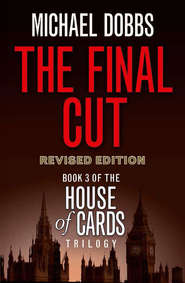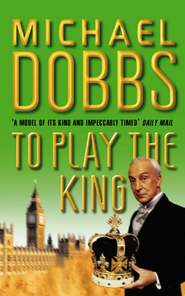По всем вопросам обращайтесь на: info@litportal.ru
(©) 2003-2024.
✖
The Touch of Innocents
Автор
Год написания книги
2018
Настройки чтения
Размер шрифта
Высота строк
Поля
‘Joe, it’s me. How are you, darling? Have I interrupted you?’ God, it was pathetic. Sunday morning, what could she have interrupted?
Another long silence.
‘Where are you?’ he muttered.
‘In England, Joe.’
‘I thought you’d disappeared to Mars.’
‘Joe, please. I’m in hospital. There was a car crash. Did you hear me?’
He didn’t seem to have made the connection. His mind was blocked, struggling to find the things he wanted to say. ‘You gonna be there long?’
‘I don’t know. Maybe another two weeks …’
‘Anything broken?’
‘No, but …’
‘Give me the address.’
‘You’re coming over?’
A silence.
‘No, I can’t. I’m up beyond my butt in work. Just give me the address, will you?’
‘Joe, there’s something I’ve got to tell you.’
‘I’ve got something for you, too. Didn’t want to do it like this, but …’
A pause while he struggled for the long-practised words and failed.
‘Hell. I’ve had enough. Of you disappearing, of being left on my own, knowing that I come about as low on your list of priorities as root-canal work. I’m out, Izzy. Out. I want a divorce. I just hope we can make it quick and clean. Be mature, eh? For the sake of the kids?’
Perhaps he might have expected the silence that followed, but he showed no sign of it. ‘Come on, Izzy, it can’t have come as that much of a shock to you. Christ, it’s not as if there’s anything left between us. Let’s just formalize it so we can both get on with our own lives. I’ve got all the details prepared for you to look at. Just give me the address.’
‘You’re trying to deliver divorce papers to me while I’m lying in hospital?’ she gasped. There was a sudden avalanche of memories, of pain, exposing the hard rock-face that had become their relationship. She recalled it clearly now. The rows, his growing frustration turning to bitterness, a marriage that had become no more than an accommodation.
‘What do you expect me to do?’ he continued. ‘You left me with no option; I haven’t known where you’ve been for more than a month. Did you expect me to wait until you finished playing Marco Polo in your own sweet time?’
‘Joe!’ she pleaded, all the carefully considered phrases swept away. ‘For God’s sake, listen to me. Please. Bella. Our baby. She’s dead.’
There was nothing from the other end of the phone. The scalding of a man’s heart makes no sound.
‘Joe, she was in the back of my car when we went off the road. Benjy’s fine but … Bella’s gone, Joe. I’m sorry.’
The voice at the other end, when at last it came, had a strained, unnatural quality.
‘You killed Bella?’
‘Don’t, Joe, please.’
‘How did it happen?’
‘I can’t remember, I just don’t know. Joe, come see me. Grab a plane. Let’s not talk about this on the phone.’
‘Where are you?’
She gave him the details. ‘You’re coming to see me, then?’
The voice on the phone was like the hissing of a serpent. ‘The only thing you’ll get from me are divorce papers. You killed Bella, you irresponsible … selfish … bitch!’
She did not know how long she lay back on her pillow, eyes closed, the tears forming twin cascades that soaked into her hair. She did not cry for her lost marriage; even with her scrambled memories she could not persuade herself she had lost something of irredeemable value. The tears were for the loneliness and sudden sense of vulnerability which settled around her like a marsh fog of autumn, for the frustration and anger as thoughts and memories collided within her head to undermine her sense of self-control, for the lack of familiar landscape in a world which in a few weeks had been shattered almost beyond recognition. But most of all she cried from aching guilt. The guilt which insisted that she might, after all, have been responsible for the crash. Her fault that Bella was dead.
Her eyes opened. She could look back no longer, not when it meant grappling with memories filled with so much pain. There was only one way – forward, no matter what, and build something new and brighter for herself and Benjamin, if she could.
She picked up Jules Verne. Her long-loved friends were still unrescued, on the very edge of disaster as they clung precariously to the balloon’s basket. She threw them in the wastebin.
Devereux sat in the corner of the New York bar and watched with a practised eye. The bar was on the lower West Side on one of those blocks where the street language was Spanish and sunlight never reached the pavement. He liked these type of places, where he could get away from it all, the officials, the papers, the constant flow of formality and urgent business which dominated his other world. This was so different: classless, outgoing, utterly un-English. A challenge. And he enjoyed a challenge.
He’d flown to Washington on his first overseas trip to flex his muscles on the Duster. The US Administration wanted this project, wanted it badly. The hot breath of Congressional concern was gusting through the basements of the Pentagon; the project’s proponents were anxious to embrace any good friend they could find and Devereux was one of the few. The deal was not yet done, there was still more juice to squeeze from the lemon, but already he had made his mark in the capital of the most powerful country on earth.
And now he had escaped. Some shopping in New York before he flew home, he had explained, letting slip the shackles, sliding away from the pathways of power to this bar, where he was no longer Minister but Man, where there were no middle class moralizers, Protection Squad heavies or Fleet Street hacks. Nothing but a good, old-fashioned challenge.
He watched as an elderly and hugely overweight woman entered the bar, dragging a plastic sack behind her and jangling a large bunch of keys suspended around her waist. She had come to restock the vending machines, wheezing as she crossed the room, pausing only to take a long pull at her cigarillo. Her jaw dropped like a fish as she gulped for breath before taking yet another pull.
Wheeze, gasp, puff, jangle, wheeze; the sounds punctuated her slow progress. In a querulous voice she announced that she had to have her back operated on again. She appeared to invite a general conversation but only the barman responded, and that after a delay of several seconds.
‘Your back again, eh?’
Another delay. Like Ground Control to Mars.
‘Not until New Year.’ She began attacking the cigarette machine. Wheeze. Puff. Jangle. ‘Not getting laid up over Christmas.’
The barman offered no response, forcing her to continue the conversation on her own. ‘I guess I’m gonna go one of three ways. Lung cancer, cirrhosis of the liver or a broken heart.’ She paused to catch her breath. ‘Think I’ll give up men. Too damn dangerous. Hell, I’m only sixty-four. Lotta life left in me yet.’ The guppy jaw dropped several times while she hitched up her sagging support tights through the folds of her woollen cardigan. The barman polished glasses.
‘They better have a cigarette waiting for me at the door of the hospital. And a drink. Going in and coming out.’
The barman raised an eyebrow; she heaved her sack and her tights slipped once more. She paused to light another cigarette from a second pack in her pocket, not a cigarillo this time but menthol. Her attempt at safe smoking, cutting the risks. Then she dragged her sack in the direction of the condom machines in the men’s toilet, barging through the door without knocking.
As her sagging frame disappeared, Devereux laughed inside. Not at her, but with her. She knew she was ludicrous, spicing her nicotine with the occasional menthol in the pretence of delaying or avoiding the inevitable process of consumption inside her lungs, but she was doing it her way and would go out on her own terms. Unlike most politicians. Unlike his father.
Know thyself, and thy weaknesses, the better to understand and if necessary to exploit the weaknesses of others, he muttered. The old woman was a hag, but no broken reed. His father, at his bitter end, would have envied her.
Devereux turned the whisky around in his glass. Life was full of challenges and risks; it took an exceptional man to confront and vanquish them and, in vanquishing, to become great. He was an exceptional man, and would become great. He wouldn’t be his failed father’s son forever.
But one challenge at a time. He finished off his drink, ordered another, and gazed with interest and anticipation at the two women who were arranging themselves at the next table.











